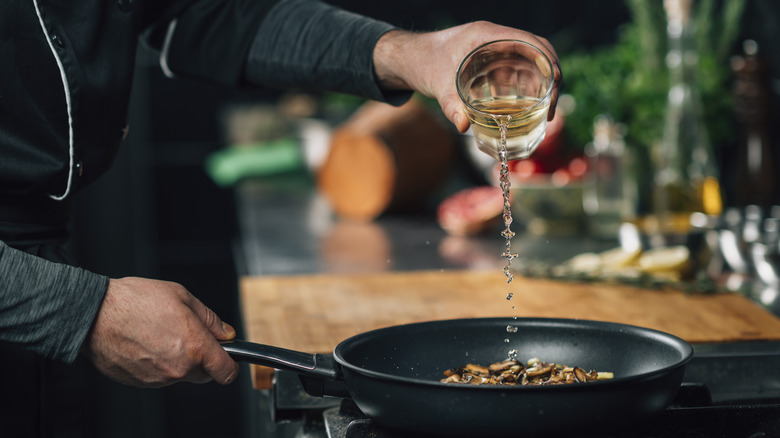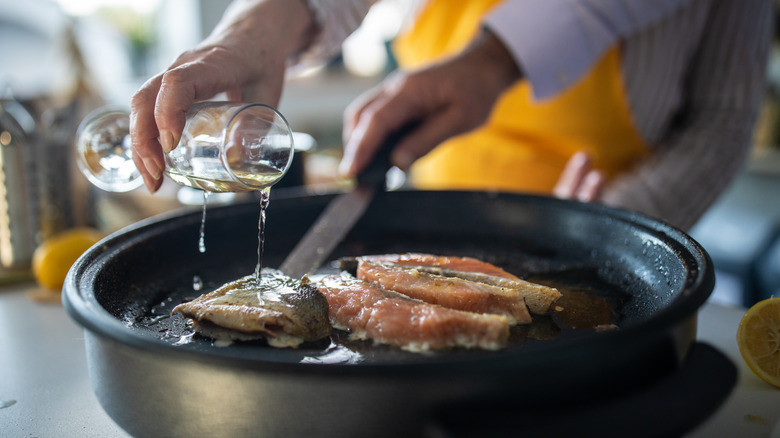One Of The Best Dry White Wines For Cooking Is A Lighter Variety
Whether you're crafting a flavorful pan sauce for chicken, whipping up a fondue, or steaming up some flavorful peas, a splash of wine can add complexity and character to the dish. A dry white wine often works well, but with a multitude of options, it can be a challenge to decide which is the best to cook with. To figure it out, Food Republic reached out to Brian Streeter, Executive Chef at Cakebread Cellars, who cooks for the winery in addition to hosting in-person Cooking with Cakebread classes as well as online Vine & Dine classes on Home Ec.
Streeter points to the age-old recommendation to cook with a wine that you're going to serve with the meal as a starting point for guidance, but notes that he doesn't always follow that rule. Instead, he often leans into one particularly versatile varietal. "I use Cakebread Cellars North Coast Sauvignon Blanc more than any other white wine when I'm cooking," he said. "Even if I'm serving our Napa Valley Chardonnay at the table, the North Coast Sauvignon Blanc gives me the acidity and lift I want in the pan, and it still plays really well with whatever I'm pouring alongside the meal." In addition to its acidity, Streeter says that sauvignon blanc gives his dishes a brightness and crispness as well as citrusy flavor.
More expert advice for cooking with wine
One of the reasons Brian Streeter says that sauvignon blanc is so ideal to cook with is because it lacks oakiness which can interfere with flavors in a dish. But, even though it's his go-to, he did say there are some other options home cooks can try. "Some chardonnays work, too," he said. "Our Napa Valley Chardonnay, in particular, can still be a great choice for this since [it's] lightly aged in oak." And when it comes to dessert, Streeter recommends reaching for fortified wines, too.
The one wine that Streeter does caution against using is grocery store cooking wine. Since there's a big difference between cooking wine and traditional vino — namely, the typical inclusion of salt and additives — it's not likely to enhance your meal. If you're looking for an alcohol-free way to elevate a recipe, you might want to use a zero-proof option or a homemade substitute for wine instead.
If you're going to take Streeter's advice and use sauvignon blanc for cooking, there's no shortage of dishes that it will take to the next level. Pour it into simmering soups and stews to add a bright contrast, deglaze a pan with it after cooking meats or veggies, or reduce it and use it to create a beurre blanc or a stock-based pasta sauce. Or, you can even turn it into a marinade, infusing proteins with flavor while tenderizing.


